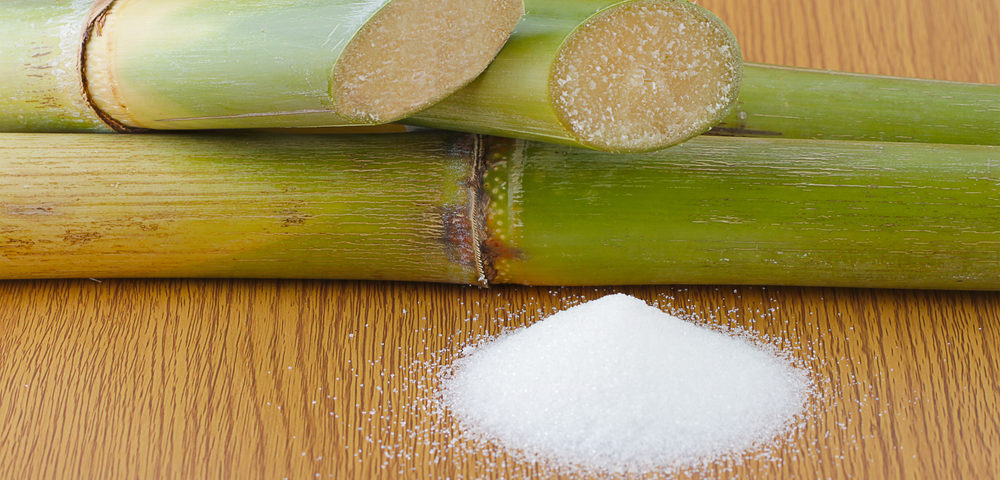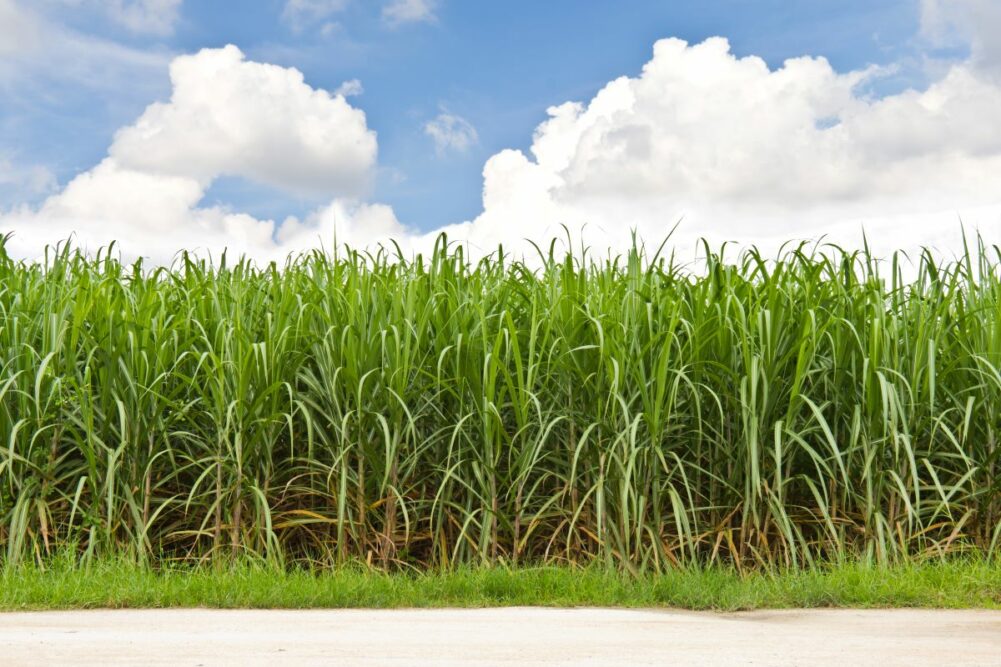Checking Out the Advantages of Cane Sugar Processing Chemicals for Lasting Practices
The combination of specialized handling chemicals in cane sugar manufacturing provides an engaging opportunity for advancing lasting practices within the sector. These chemicals not just improve removal efficiency and item clarity yet also add to substantial reductions in resource consumption and ecological effect.

Summary of Cane Sugar Handling
Cane sugar handling entails a collection of detailed steps created to essence and fine-tune sucrose from sugarcane. This process starts with collecting the sugarcane, which is normally done by cutting the stalks close to the ground. sugar and cane. When gathered, the walking cane is transported to a processing center, where it undergoes washing and shredding to prepare it for juice extraction
The next action entails crushing the shredded walking stick to launch the juice, which contains liquified sucrose along with different impurities. This juice is after that clarified, usually via home heating and the addition of lime, to get rid of solid contaminations and acquire a clearer liquid. The made clear juice is ultimately vaporized to concentrate the sugar web content, resulting in a syrup.
The raw sugar is additional fine-tuned with procedures such as drying out and washing, ultimately producing the final item that is appropriate for intake. Each step in this substantial process is essential for making sure high-grade cane sugar, highlighting the complexity and precision inherent in sugar manufacturing.
Duty of Processing Chemicals

Making use of processing chemicals is indispensable to the efficient removal and filtration of sucrose during walking stick sugar manufacturing. These chemicals serve multiple features, including enhancing the clearness of juice, optimizing removal rates, and facilitating the removal of impurities. Secret processing chemicals consist of phosphoric acid, which helps in the clarification procedure, and calcium hydroxide, which neutralizes level of acidity and aids in the rainfall of impurities.
In addition, refining chemicals can boost the general yield of sugar by guaranteeing maximum sucrose removal from the cane. Chemical therapies are likewise getting prominence, as they can damage down complex carbohydrates right into fermentable sugars, thereby raising effectiveness. The application of these chemicals not only enhances the manufacturing procedures however also makes sure that the resulting sugar meets rigid high quality criteria.
Furthermore, the duty of processing chemicals prolongs to boosting functional efficiency by lowering the power and water required throughout handling. This not only adds to cost savings yet additionally straightens with more comprehensive sustainability goals within the sugar sector. By recognizing and maximizing the function of these chemicals, producers can enhance manufacturing efficiency while maintaining product top quality and security requirements.
Environmental Benefits
Sustainable sugar manufacturing not just improves functional efficiency however also offers substantial ecological advantages that add to a healthier ecosystem. The application of handling chemicals made for sustainability assists decrease the eco-friendly footprint of sugar production. These chemicals often enable the reduction of dangerous by-products, fostering a cleaner manufacturing procedure that protects neighborhood waterways and dirt top quality.
Moreover, lasting methods in cane sugar processing enhance biodiversity. By lowering chemical overflow and toxins, these methods safeguard habitats and advertise the wellness of bordering vegetation and animals. The application of eco-friendly chemicals often leads to much better source monitoring, as they can facilitate the use of natural waste items as plant foods, thus closing the nutrient loop and enhancing the soil.
Ultimately, these innovations not only support the sugar market's environmental goals however additionally align with worldwide initiatives aimed address at combating climate modification and promoting sustainability. Accepting these methods is crucial for the long-term feasibility of sugar manufacturing and the defense of our earth's sources.
Effectiveness and Waste Decrease
Executing sustainable practices not only enhances ecological results however also drives efficiency and waste decrease in cane sugar processing. The integration of specialized handling chemicals can substantially maximize production operations, minimizing the power and water intake normally connected with standard approaches. Enzymes customized to improve sugar extraction can minimize the quantity of raw product required, resulting in reduced functional costs and decreased waste generation.
Furthermore, by utilizing eco-friendly or non-toxic processing representatives, makers can mitigate the threat of wastewater contamination, leading to decreased treatment demands and further saving sources (sugar and cane). Structured processes allowed by these chemicals can also boost the recuperation rates of sugar, which not only maximizes result yet additionally lowers the volume of byproducts that call for disposal
In addition, applying real-time surveillance modern technologies combined with handling chemicals enables better control over operational specifications, facilitating fast adjustments that can stop inefficient variances. Generally, the critical usage of walking cane sugar processing chemicals advertises an all natural strategy to manufacturing effectiveness, aligning economic stability with lasting methods that benefit both producers and the setting.
Enhancing Product Top Quality

In addition, the application of pH regulators can optimize the processing conditions, ensuring that the sugar preserves its desirable taste profile while reducing the formation of undesirable byproducts (sugar and cane). This not just enhances the general high quality however likewise expands the rack life of the sugar, fulfilling the needs of both consumers and retailers
Additionally, the execution of these chemicals is often straightened with sustainable techniques, decreasing the environmental impact of sugar production while improving product high quality. By making use of biodegradable and eco-friendly processing representatives, suppliers can enhance their market appeal and add to lasting industry criteria.

Conclusion
In conclusion, the integration of specialized walking stick sugar handling chemicals offers considerable advantages for lasting methods within the industry. Inevitably, such environment-friendly options straighten product high quality with sustainability goals, developing a structure for reliable and accountable sugar production.
The combination of specialized handling chemicals in walking stick sugar production presents a compelling opportunity for progressing sustainable practices within the industry. Each step in this extensive procedure is critical for ensuring premium walking cane sugar, highlighting the complexity and accuracy intrinsic in sugar production.
The usage of processing chemicals is important to the reliable removal and filtration of sucrose during cane sugar manufacturing. The usage of specialized handling chemicals can significantly boost the purity, color, and taste of sugar items.In verdict, the assimilation of specialized walking cane sugar processing chemicals offers significant advantages for sustainable techniques within the market.
Comments on “The Environmental Impact of Growing Sugar and Cane in Various Regions”